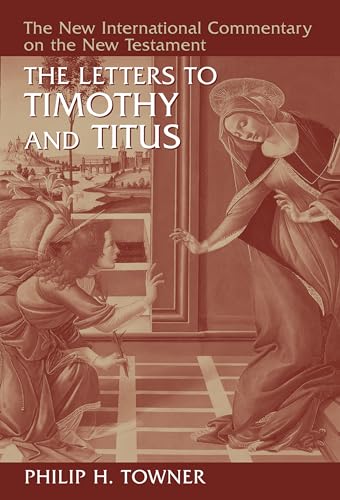A review of The Letters to Timothy and Titus. By Philip Towner.
Eerdmans, 2006.
Major recent commentaries on the Pastoral Epistles that have featured a more-or-less conservative and evangelical stance include the NIGTC volume by Knight (1992), the Word volume by Mounce (2000) and the Anchor Bible/ECC hybrid by Quinn and Wacker (2000).
Towner is an authority in this area, and has already penned the IVPNTC volume on these books (1994). He also assisted Marshall in the ICC volume (2000). Thus his NIC volume is certainly the newest but also arguably among the finest.


For quite some time now, the NIC series has been the backbone of evangelical scholarship. Begun in the 1950s, the New Testament set is now almost complete (we still await Matthew and 2 Peter/Jude). It is probably the most consistent series in terms of conservative, evangelical scholarship. (The Old Testament set has quite a few more volumes still forthcoming.)
Towner’s volume is a welcome addition to the NIC series. As to the Pastoral Epistles (a term he finds no longer of much value), Towner argues for Pauline authorship. There may have been others who contributed to their composition and message, but Paul is clearly their primary author.
On the vexatious question of women in leadership and ministry, he takes the egalitarian approach, finding fault with both the hierarchical and the radical feminist approaches. He carefully assesses the many issues involved in the question of female leadership, and argues that overall Pauline considerations (such as Gal. 3:28) must not be overlooked in this complex debate.
On some controversial topics, he takes a somewhat safe approach. For example, on the issue of homosexuality, he wisely makes this assessment: “The exegesis of these passages is not in question, and the fate of the current debate about homosexuality will rest on hermeneutics”. He then directly moves on to the next passage!
The commentary itself is laid out in the standard manner of the NIC series. A lengthy introduction (90 pages) to the three letters deals with the usual material: text and translation, hermeneutical options, historical and theological considerations, and related matters.
The bibliography is helpful and extensive, although it does not follow the trend of some to list everything under the sun which even remotely relates to the book in question.
The commentary is fluid and easy to read, with more technical discussion relegated to numerous footnotes. Towner is fair and judicious to differing opinions, and is clearly well-versed in all the relevant literature.
In sum, this volume is a monumental achievement, giving these three short epistles major coverage. It will serve both student and scholar for many years to come. A splendid effort.
[431 words]



















